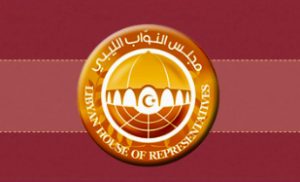By Sami Zaptia.
London, 28 September 2018:
The House of Representatives (HoR) moved forward a step in re-formulating the Presidency Council currently led by Faiez Serraj.
In its Tuesday session, the HoR authorized the Chairman of its Dialogue Committee, Abdulsalam Nasia, to communicate with the High State Council (HSC) in order to agree on the mechanism of selecting a new executive authority.
It will be recalled that under the terms of the 2015 Skhirat Libyan Political Agreement, the Presidency Council can only be changed with the agreement of both the HoR and the HSC. To this end, a committee, the Dialogue Committee, has been created to facilitate negotiations between the two bodies.
HoR spokesperson Abdalla Belheeg stated that the HoR discussed the unification and restructuring of the country’s executive authority, and that Tuesday’s session authorized the chairman of the Dialogue Committee, Abdulsalam Nasia, to communicate with the HSC to agree on mechanisms of selecting a new “Executive authority”.
This would take the form of a Presidential Council made up of the a president and two deputies. Belheeg said that the HoR instructed Nasia to conclude these procedures in less than two weeks from Tuesday (13 October).
Part of the new reform is also the appointment of a fourth person as prime minister who is not a member of the Presidency Council.
It is hoped that the Tripoli militia war has added some urgency to the reforming desires of the HoR and the HSC. It is hoped that the militia fighting might provide some unity and force some compromise between the two bodies.
However, pessimists worry that once the two bodies arrive at the stage of actually agreeing on candidates for the new posts, the old divisions may start to appear.
Ultra pessimists believe that the HoR and HSC are simply engaged in posturing in reaction to public pressure for action. They believe that both bodies are only interested in the status quo and perpetuating their existence and the generous salaries and allowances that come with it.







